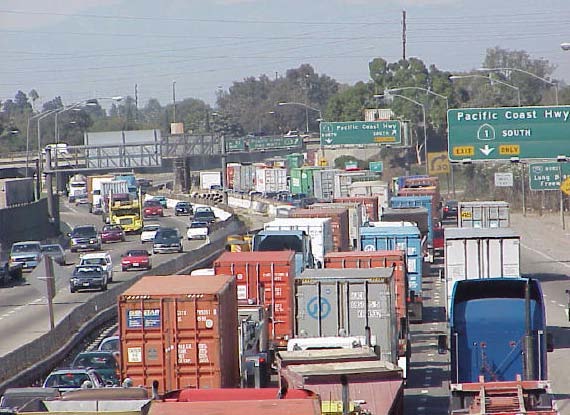The full Senate passed a major appropriations bill yesterday, including funding levels for transportation and housing. The Senate put the kibosh on Sen. Rand Paul's attempt to strip bike/ped funding from the federal transportation program, as we reported yesterday. Here's the lowdown on the bill as a whole.

The upper chamber maintained funding for several key livability programs, teeing up a fight with the GOP-led House over spending levels. A finished 2012 budget is already a month overdue and despite the Senate passage of a “minibus” (as opposed to an “omnibus”) spending bill yesterday, no one seems to expect a completed bill anytime soon.
The Senate bill maintains current overall spending levels, which, in the current environment, is a win for advocates of transportation investment, though given that the numbers don't account for inflation, they essentially amount to a spending cut.
Either way, these figures don’t shift the status quo very much. While funding for TIGER and transit projects gets a modest boost, high-speed rail has been sharply reduced in this bill. And, since this appropriation comes in the absence of a new reauthorization of the federal transportation program, which could set new policies, these funds come without any guarantee that the money will be spent more wisely, in the pursuit of strategic goals and keeping systems in a state of good repair.
The bill includes:
- $550 million for the TIGER program, a key element of the shift away from formula funding and toward merit-based allocations for the most innovative projects. The bill sets aside almost a quarter of that funding for projects in rural communities. This funding level would represent a $23 million jump over the actual enacted number for this year.
- $41 billion – the same as this year – for the Federal-aid Highway program. Sen. Barbara Boxer was disappointed that the Senate did the math differently this year – rather than allocating $44 billion and then rescinding $3 billion of it, this bill makes the cut upfront. While that appears to be a more straightforward way to do it, some fear that it makes the baseline funding level look lower. That means that future funding will be determined based on $41 billion, not $44 billion.
- $358 million more than this year the New Starts program for capital transit projects, bringing the total up to about $8.7 billion $1.955 billion.
- $800 million for vehicle and driver safety programs, including research into the Toyota sudden-acceleration issue and incentive grants to states that enact distracted driver laws.
- $150 million for transit safety, all of it going to the Washington Metropolitan Area Transit Authority, still reeling from a deadly red line crash in 2009.
- $90 million for the Sustainable Communities Initiative – specifically, for grants from HUD’s Community Development Fund to promote integrated housing and transportation planning at the local and regional level. USDOT and EPA are partners in this effort.
- $120 million for HUD’s Choice Neighborhoods Initiative, a near-doubling of this year’s funding for this subset of the HOPE VI program. Aside from its focus on improving public housing, it also looks to improve access to schools, transportation, jobs and other services.
- $25 million for grants to help transit agencies reduce the energy consumption or greenhouse gas emissions of their operations.
- $100 million for high-speed rail, rescued by a few die-hard senators, in the face of a body almost ready to throw in the towel on the whole program.
- $544 million for Amtrak operations and $937 million for Amtrak capital projects. Amtrak is a favorite target of free-marketeers in the House looking to privatize passenger rail service in the U.S., so if the House and Senate ever even get so far in this budget process that they argue over such things, they’ll be arguing over this.





